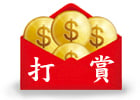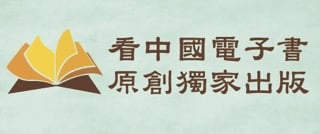古时候的游方郎中无论走到哪里,身上都要背着个葫芦。把葫芦作为行医的招牌,为什么行医要背葫芦呢?这还有个来历。
In ancient China, a wandering doctor of Chinese medicine would carry a gourd, which was the sign for Chinese medicine. Why so? There was a story.
据《太平广记》记载,河南汝南有 个当市掾的人叫费长房,忽然看见壶公从远方来到街上卖药,壶公是一位道教真人,可人们都不认识壶公,他卖药不许还价,他的药服后不管什么病都能治好。壶公 把药卖出之后,总要嘱咐买药的人,说服了药之后会吐出什么东西,哪一天病会好,他说的话每一次都很应验。他每天卖药都能挣好几万钱,然后就把钱施舍给街上 那些饥寒贫穷的人,只留下三五十个钱。他经常把一个空壶挂在屋顶上,太阳落山之后,他就跳进壶里。这事谁也没发现,只有费长房在楼上看见了,他知壶公不是 凡人。费长房就天天清扫壶公的屋子,供给壶公吃的东西,壶公也不推辞。日子长了费长房仍坚持不懈地照常扫地供食,也不敢对壶公有所请求。
According to Tai Ping Guang Ji (Extensive Records of the Taiping Era) , in the Runan area of today's Henan province, there was an official called Fei Changfang. He saw an old man coming into town to sell medicine. The old man's name was Hu Gong. He was an enlightened Taoist but nobody knew who he was. Hu Gong didn't allow people to bargain with him on the price of his medicine. After taking his medicine, any illness could be cured. Every time after Hu Gong sold his medicine, he would tell the buyer what would be vomited after taking his medicine and on which day the illness would be cured, and every time it came true. Hu Gong could earn tens of thousands of coins every day, but he would give them away to those poor people on the street, leaving only thirty to fifty coins for himself. He always hung an empty gourd on the ceiling of his house, and after sunset, he would jump into the gourd when nobody was watching. One day Fei Changfang was sitting in a room on the second story of his house, and he happened to see Hu Gong jumping into the gourd. He knew that Hu Gong was not an ordinary man. He began to clean Hu Gong's room everyday and supply him with food. Hu Gong accepted everything. Fei continued to clean the room and provide food for Hu quietly for a long time, not daring to ask for anything from Hu Gong.
壶公看出来费长房心地很虔诚,有一次就对他说:“到晚上没人的时候你到我这儿来吧。”费长房晚上来到壶公屋里,壶公对他说:“你看我跳进壶里时,你也和我一 样跳。”费长房照他的话一跳,果然不知不觉地已在壶中了。进去后并不觉得在壶中,只见楼观重重叠叠,阁道横空,宛若飞虹,费长房发现自己进入了一个神仙的世界。后来壶公给费长房一卷封着的符说:“你有了这符就能驱使鬼神,长期当天神的使者,还可以治病消灾。” 从此费长房为纪念壶公,便悬壶行医,成为当时的一代名医。所以中医除了有岐黄、青囊、杏林等三个名字外,还有第四个名字叫“悬壶”。
Hu Gong could tell that Fei Changfang was very sincere, so he told Fei one day, "Come here tonight when nobody is around." Fei Changfang came. Hu Gong told him, "After you see me jumping into the gourd, follow me." Fei Changfang did as he was told, indeed he found himself already in the gourd without knowing it. But he didn't feel that he was in a gourd. Seeing layers and layers of buildings and towers, and pavilions built in the air, he found himself in a paradise. Later on Hu Gong gave Fei Changfang a roll of sealed incantations and said, "With this you can drive demons away, serve as the deities' long term messenger, and also cure illnesses and remove misfortune."
悬壶的 “壶”不是酒壶,而是葫芦的一个名字。古代典籍中,对葫芦的称呼是不一样的,仅在《诗经》中就有四种叫法,《邶风》云:“匏有苦叶,济有涉深”;《卫风》 云:“齿如瓠犀”;《幽风》云:“七月食瓜,八月断壶”;《小雅》云:“南有木,甘瓠累之”。诗经中所说的:“匏”、“瓠”、“壶”、“甘瓠”,都是指葫 芦,只是品种不同而已。因此悬壶实际上是悬葫芦,以后人们就把医生腰间挂的和诊所前悬的葫芦,看成了中医的标志。
From then on, to commemorate Hu Gong, Fei Changfang hung a gourd and practiced Chinese medicine, and became a famous doctor of his era. Therefore one of the names of Chinese medicine is "Xuan Hu (Hanging a gourd)."
- 关键字搜索:
- 中英
看完这篇文章觉得


























排序